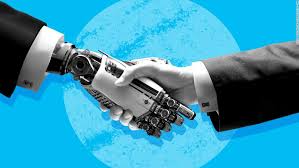
Breaking News
 How To Become Competent, Confident, and Dangerous, with guest Doug Casey
How To Become Competent, Confident, and Dangerous, with guest Doug Casey
 My Hot Take On Bill Gates' Climate Change Essay | Alex Epstein #457 | The Way I Heard It
My Hot Take On Bill Gates' Climate Change Essay | Alex Epstein #457 | The Way I Heard It
 Discussion on Covid Vaccination Should Be Non-Controversial
Discussion on Covid Vaccination Should Be Non-Controversial
Top Tech News
 HUGE 32kWh LiFePO4 DIY Battery w/ 628Ah Cells! 90 Minute Build
HUGE 32kWh LiFePO4 DIY Battery w/ 628Ah Cells! 90 Minute Build
 What Has Bitcoin Become 17 Years After Satoshi Nakamoto Published The Whitepaper?
What Has Bitcoin Become 17 Years After Satoshi Nakamoto Published The Whitepaper?
 Japan just injected artificial blood into a human. No blood type needed. No refrigeration.
Japan just injected artificial blood into a human. No blood type needed. No refrigeration.
 The 6 Best LLM Tools To Run Models Locally
The 6 Best LLM Tools To Run Models Locally
 Testing My First Sodium-Ion Solar Battery
Testing My First Sodium-Ion Solar Battery
 A man once paralyzed from the waist down now stands on his own, not with machines or wires,...
A man once paralyzed from the waist down now stands on his own, not with machines or wires,...
 Review: Thumb-sized thermal camera turns your phone into a smart tool
Review: Thumb-sized thermal camera turns your phone into a smart tool
 Army To Bring Nuclear Microreactors To Its Bases By 2028
Army To Bring Nuclear Microreactors To Its Bases By 2028
 Nissan Says It's On Track For Solid-State Batteries That Double EV Range By 2028
Nissan Says It's On Track For Solid-State Batteries That Double EV Range By 2028
Facebook Research is developing touchy-feely curious robots

As a social media platform with global reach, Facebook leans extensively on its artificial intelligence and machine-learning systems to keep the site online and harmful content off it (at least, some of the time). Following its announcement at the start of the month regarding self-supervised learning, computer vision, and natural language processing, Facebook on Monday shared details about three additional areas of research that could eventually lead to more capable and curious AI.
"Much of our work in robotics is focused on self-supervised learning, in which systems learn directly from raw data so they can adapt to new tasks and new circumstances," a team of researchers from FAIR (Facebook AI Research) wrote in a blog post. "In robotics, we're advancing techniques such as model-based reinforcement learning (RL) to enable robots to teach themselves through trial and error using direct input from sensors."
Specifically, the team has been trying to get a six-legged robot to teach itself to walk without any outside assistance. "Generally speaking, locomotion is a very difficult task in robotics and this is what it makes it very exciting from our perspective," Roberto Calandra, a FAIR researcher, told Engadget. "We have been able to design algorithms for AI and actually test them on a really challenging problem that we otherwise don't know how to solve."

 Dark Tidings
Dark Tidings Carbon based computers that run on iron
Carbon based computers that run on iron

